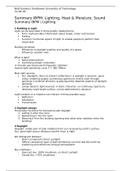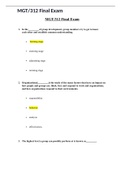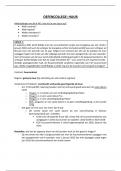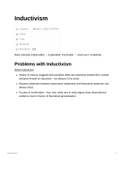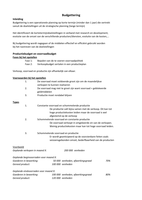Samenvatting
Summary IBPM
- Vak
- 7S3X0
- Instelling
- Technische Universiteit Eindhoven (TUE)
This is a summary for the course 7S3X0 Introduction Building Physics and Material Science. The summary is about the theory of the second part of the course: the Building Physics part. This summary was made using the reader for Lighting, Heat and Moisture and Sound. It is written fully in English. N...
[Meer zien]
